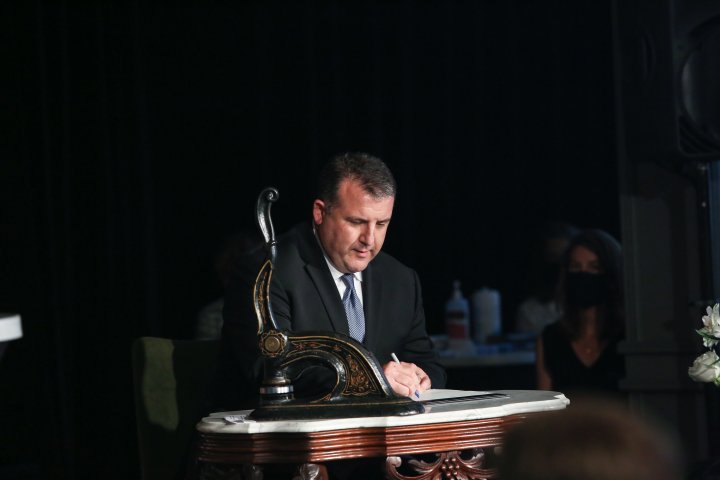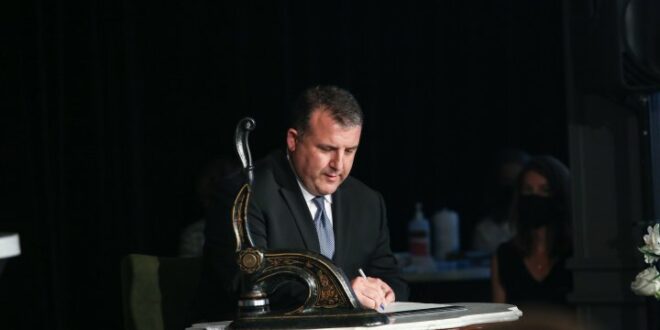
The province of New Brunswick is making $40 million available to the province’s regional service commissions (RSCs) to pursue their new economic development mandate.
Until recently, RSCs were primarily responsible for solid waste collection, but the province’s local government reform program handed a suite of new responsibilities to the regional bodies, including economic development, tourism marketing, regional transportation, recreational facility cost sharing and, in some cases, addressing social issues. The 12 RSCs are made up of the mayors of each municipality in a given region.
The new funding will flow from Working NB and the Department of Post-Secondary Education, Training and Labour (PETL) and be available in the form of long-term funding agreements over the next decade.
“This is transferring funds from central government to the regions,” Local Government Minister Daniel Allain told reporters.
“All along, you will see in the white paper, we were going to transfer resources and the tools to make sure the RSCs work on those new five priorities.”
The funding will provide $4 million a year split between 11 RSCs based on population. PETL Minister Trevor Holder says it works out to about $8 per person. The Fundy Regional Service Commission already has a deal in place and isn’t included in the new funding stream.
Allain has faced criticism over the new mandates and a change in how the province funds municipalities, with some worrying the province is downloading responsibilities onto municipalities that have a limited ability to raise revenues.
A new community funding model announced in the fall will also see core grants from the provincial government, or the amount received by every municipality based on tax base, phased out over five years and equalization grants remain.
With municipalities now able to set a separate tax rate for non-residential properties, at 1.4 to 1.7 per cent of the residential rate, Allain has said that enough additional fiscal capacity has been created to offset the loss of revenue and help pay for the new responsibilities at the regional service commission level.
The core grant will be decreased by 20 per cent each year for the next five years. That money will then flow to regional service commissions, which will now be able to use it to pay for operations and help meet their obligations under the new mandate.
The move to provide a new stream of direct funding to help pay for the new mandates is being welcomed by the New Brunswick Union of Municipalities, who have raised concerns over the potential costs to local governments as a result of the reform process.
“It’s certainly a good place to begin,” said the union’s executive director Dan Murphy, who was pleased to see that the funding deals will run over the next 10 years.
“Ensuring that there’s funding and it’s not just a downloading of services is going to be key.”
Each RSC has until July to put together a regional plan, which will help guide funding needs in other areas. Allain said the province will be announcing other funding streams targeted at some of the other new RSC obligations.
“Today’s announcement is specifically on economic development, we will be doing successive announcements on other responsibilities,” he said.
Allain also announced a summit on municipal funding, which will take place this fall.
[ad_2]You can read more of the news on source
 Travelsmart
Travelsmart



